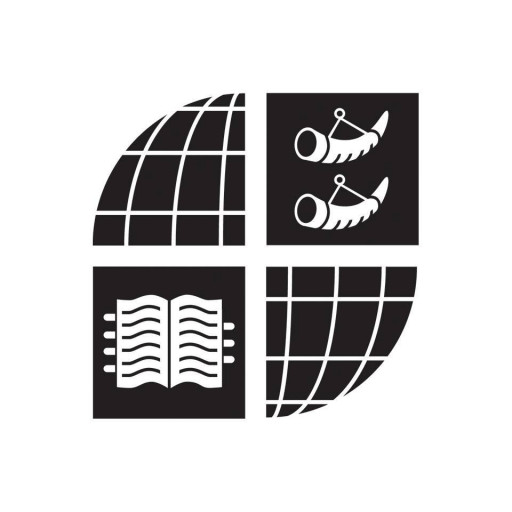Photos of university / #sussexuni
The MA in Human Rights at the University of Sussex offers students an in-depth exploration of the principles, mechanisms, and challenges associated with the promotion and protection of human rights worldwide. This program is designed to provide a comprehensive understanding of the philosophical foundations of human rights, the international legal frameworks that underpin them, and the complex socio-political issues surrounding their implementation. Students will engage with a broad range of topics, including human rights law, global justice, political activism, and the role of international organizations, governments, and civil society in advancing human rights standards.
Throughout the course, students will analyze case studies of human rights abuses and successes, fostering critical thinking skills essential for policy development and advocacy. The program emphasizes interdisciplinary approaches, drawing from law, politics, sociology, and international relations to examine the effectiveness of existing human rights mechanisms and explore innovative solutions to persistent human rights problems.
Students will also participate in seminars, workshops, and independent research projects, allowing them to develop a nuanced understanding of contemporary issues such as refugee rights, gender equality, freedom of expression, and state sovereignty. The program prepares graduates for careers in human rights advocacy, international organizations, non-governmental organizations, legal practice, or further academic research.
With a global perspective and a commitment to social justice, the MA in Human Rights at Sussex fosters a supportive learning environment where students can critically assess the challenges faced by marginalized groups and contribute meaningfully to efforts aimed at fostering equality, justice, and human dignity. This program emphasizes practical skills alongside theoretical knowledge, ensuring that graduates are well-equipped to make a positive impact in the field of human rights worldwide.
Core modules
- Human Rights and the Politics of Culture
- Liberalism, Modernity and Globalisation
- Research Methods and Professional Skills (Int Dev)
Options
- Activism for Development and Social Justice
- America in the World: Race, Coloniality and Knowledge
- Anthropology of Childhood
- Anthropology of Reconciliation and Reconstruction
- Critical Debates in Environment and Development
- Culture and Identity Rights
- Dissertation (Human Rights)
- Dissertation with Placement (Global Studies)
- Fair Trade, Ethical Business & New Moral Economies
- Human Rights in International Relations
- International Crimes
- Knowledge, Power and Resistance
- Liberal peace, liberal war?
- Livelihoods, Inequalities and Rural Change
- Medical Anthropology: Cultural Understandings of Health and Healing
- Migration, Inequality and Social Change
- Postcolonial Africa: Politics and Society
- Poverty, Vulnerability and the Global Economy
- Refugees, Displacement and Humanitarian Responses
- Sex and Violence
- Transnationalism, Diaspora and Migrants' Lives
- Women and Human Rights
Requirements
- Magistr or Specialist Diploma with a minimum average mark of at least 4
- A first- or upper second-class undergraduate honours degree in politics, international relations, philosophy, law, history, sociology, anthropology, development studies or a related field
- IELTS 6.5, with not less than 6.0 in each section.
- Reference
- Transcript
- A personal statement
- The application fee is £13 if you’re applying to just one course
Want to improve your English level for admission?
Prepare for the program requirements with English Online by the British Council.
- ✔️ Flexible study schedule
- ✔️ Experienced teachers
- ✔️ Certificate upon completion
📘 Recommended for students with an IELTS level of 6.0 or below.
Funding for the Human Rights program at the University of Sussex is available through various sources designed to support both domestic and international students. Prospective students are encouraged to explore a range of scholarships, bursaries, and grants to finance their studies. The university offers several merit-based scholarships that consider academic achievements, as well as need-based awards aimed at supporting students from diverse socio-economic backgrounds. Specific scholarships may be available for students enrolling in Human Rights-related courses, which can significantly offset tuition fees.
In addition to university-specific funding, students can apply for external scholarships and funding opportunities provided by governmental and non-governmental organizations. For example, the UK government offers funding options such as the Chevening Scholarships and Commonwealth Scholarships, which support students pursuing postgraduate studies in the UK, including programs focused on human rights. Students are also advised to investigate funding options through their home countries' government scholarships, NGOs, and philanthropic foundations that promote human rights education.
The university's financial aid office provides comprehensive guidance and support to help students identify suitable funding options and navigate the application processes. The availability of loans, particularly government-backed student loans, also forms an essential part of the funding landscape for domestic students. International students may have access to different funding arrangements and are encouraged to consult the university’s international student support services for tailored advice.
It is important for applicants to begin their financing planning early, as some funding opportunities require application well before the start of the academic year. The university often updates its scholarships and funding programs, so prospective students should review the latest information regularly on the official Sussex website. Overall, securing funding for the Human Rights program involves a combination of university scholarships, external awards, loans, and personal savings, enabling students to access high-quality education in human rights studies at the University of Sussex.
The University of Sussex offers a comprehensive program in Human Rights designed to provide students with a deep understanding of the fundamental principles, legal frameworks, and practical applications of human rights issues worldwide. The program explores the historical development of human rights, the philosophical foundations of human dignity, and the socio-political factors that influence human rights policies and enforcement. Students will examine key topics such as international human rights law, social justice, human rights advocacy, and the role of institutions like the United Nations and Amnesty International. The curriculum emphasizes interdisciplinary approaches, integrating perspectives from politics, law, sociology, and international relations to equip students with a well-rounded understanding of complex human rights challenges.
Throughout the course, students engage in critical analysis of contemporary issues such as refugee crises, gender equality, freedom of expression, and rights-based approaches to development. Practical skills are developed through seminars, workshops, and case studies, enabling students to critically assess human rights violations and formulate effective strategies for advocacy and policy influence. The program fosters research capabilities, encouraging students to undertake independent projects or dissertations that contribute to current debates in human rights practice and theory.
The University of Sussex emphasizes experiential learning, often involving collaborations with NGOs, policymakers, and human rights organizations. This exposure helps students gain real-world insights and build professional networks that are essential for careers in human rights advocacy, international law, policy analysis, or academia. The faculty members are experts in their fields, with extensive experience in international human rights law, conflict resolution, and social justice campaigning, ensuring students receive a rigorous and relevant education.
Graduates of the Human Rights program at Sussex are prepared for employment in various sectors, including government agencies, international organizations, non-governmental organizations, and academia. The program also provides a solid foundation for postgraduate study in related fields. Overall, the program aims to cultivate a new generation of committed and well-informed human rights advocates capable of making meaningful contributions to social justice and global equity.


